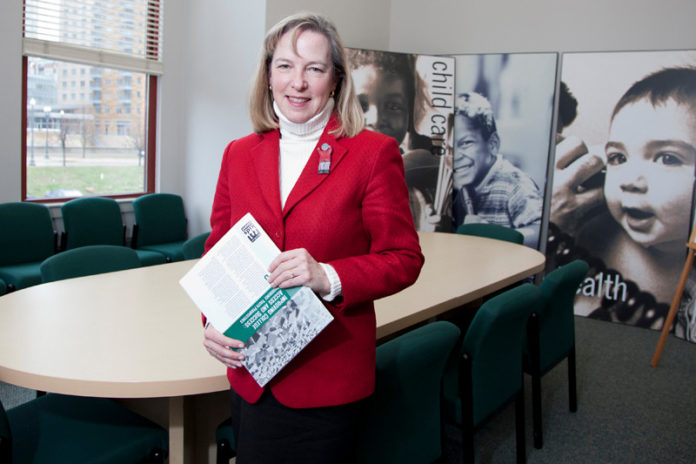
College-preparedness programs here are working to engage students but need to be expanded, according to a new study that gives voice to those most affected by the issue – Rhode Island students from families with low incomes.
Rhode Island Kids Count in December released Improving College Access and Success, a report summarizing a series of focus groups conducted with Providence high school students that asked what support they need to complete the college-application process.
“There is such an illumination of the real issues when you talk to young people who right now, at this moment, are the youth we are talking about,” said Elizabeth Burke Bryant, executive director of Rhode Island Kids Count.
Kids Count, a children’s policy and advocacy organization, partnered last May with Young Voices, a nonprofit that strives to give youth a voice in policy reform, to conduct the focus groups.
More than 60 Providence youths who participate in Young Voices’ year-round Leadership Transformation Academy, which prepares them to push for education policy change at local and state levels, took part in five focus groups.
“A lot of times [adults and leaders] make policies and programs for young people without talking to them and just think we know best,” said Karen Feldman, executive director of Young Voices. “We say we know better but we really don’t.”
The students were asked to comment on how schools and community agencies in Providence were handling encouraging youths to go to college, helping them to identify schools to apply to and helping them and their parents with the application process.
The focus groups included students in ninth through 12th grade. Seventy-five percent of the students attended a Providence public high school and the remainder attended a charter school located in Providence.
They also reported feeling that they were well-informed regarding SAT preparation and scheduling.
Students suggested college conversations get serious in the freshman year of high school, that students need more individual support, and making more available scholarship information.
Bryant said students responded in the focus groups that they are pleased with the services provided by community-based agencies, including College Crusade, which works to improve educational and career success for low-income students, and College Visions, which gives individualized advising to low-income and first-generation college-bound students.
They also gave positive feedback to the Summer Program at Brown University, Upward Bound, Young Voices, and Providence Youth Works, but expressed a concern that community programs are too limited in their financial and personnel capacity to reach every at-risk student.
The project was focused on being able to provide recommendations on how to improve the college-success chances for students from families with low incomes.
“With all the very important emphasis on rebuilding Rhode Island’s workforce to meet the demands on the new economy, there also has been a lot of emphasis on what our young people need to succeed,” Bryant said. “Clearly, with the kind of jobs that are out there, having a college education or some career training is really critical for many of the available jobs and for having our young people being able to make choices about their lives and careers.” •










